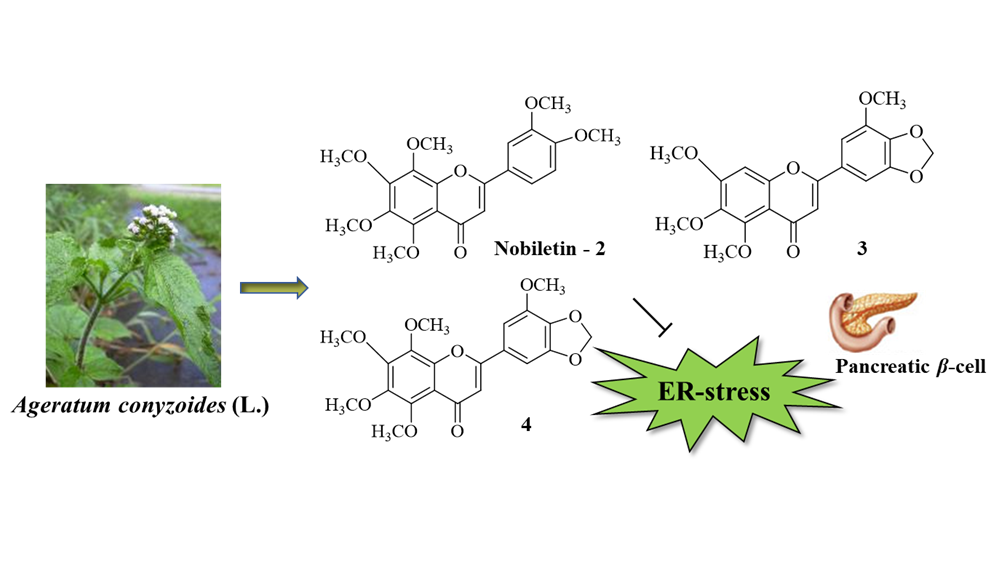JOURNAL 1697
Records of Natural Products
Year: 2021 Issue: 2 March-April
p.82 - 90
Viewed 3505 times.
-
Tran Duy Binh

-
Ryo Kusunoki

-
Thanh Q. C. Nguyen

-
Ako Nakagami

-
Kenji Kanaori

-
Yen D. H. Nguyen

-
Tuan L. A. Pham

-
Cuong C. Nguyen

-
Le Van Vang

-
Kaeko Kamei

GRAPHICAL ABSTRACT

ABSTRACT
Ageratum conyzoides is an herbaceous plant widely used in traditional medicine against various diseases, and possesses anti-inflammatory, anti-ulcer, analgesic, and diuretic properties. However, its effects on endoplasmic reticulum (ER) stress, as observed in diseases such as diabetes, have not yet been characterized. In this study, using mouse pancreatic Beta-cells, we demonstrated that the ethanol extract of A. conyzoides effectively suppressed cell death induced by ER stress. Four polymethoxyflavones (PMFs) including (1) 5,6,7,3′,4′,5′- hexamethoxyflavone; (2) 5,6,7,8,3′,4′-hexamethoxyflavone (nobiletin); (3) 3′,4′-methylenedioxy-5′,5,6,7- tetramethoxyflavone; and (4) 5,6,7,8,5′-pentamethoxy-3′,4′-methylenedioxyflavone were isolated from the ethyl acetate fraction using reverse-phase chromatography. Their structures were elucidated using spectroscopic and mass-spectrometric analyses including 1D-, 2D-NMR, and HRESI-MS. All compounds were further evaluated for their ability to inhibit ER stress. Our results suggested that only compound 1 did not show an ability to rescue ER stress-induced cell death. Additionally, compound 2 as a nobiletin and its commercial product alleviated the tunicamycin-dependent chop mRNA expression induction. Notably, extremely low concentrations of both compounds exerted cytoprotective activity against tunicamycin-induced ER stress in pancreatic Beta-cells
KEYWORDS- Ageratum conyzoides
- anti-endoplasmic reticulum stress
- pancreatic-cells
- nobiletin